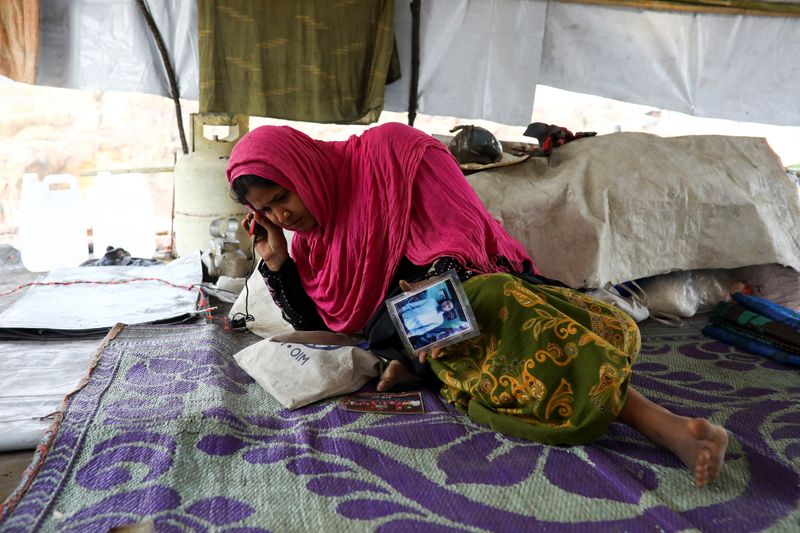By Ruma Paul
BALUKHALI REFUGEE CAMP, Bangladesh (Reuters) - After losing her husband, two young sons and her home, Noor Banu thought she had seen the worst of life.
She made the perilous journey from her village in Myanmar’s Rakhine State to the refugee camps in Bangladesh in 2017, with nothing except her four surviving boys.
Now she fears she has lost another son to the massive blaze that ripped through the Cox's Bazar camps, reducing tarpaulin and bamboo shelters to ash. More than 300 refugees are missing. Eleven-year-old Mohammed Karim is among them.
"I can’t take this pain any more," Banu said, breaking into sobs as she spoke to Reuters inside a temporary shelter on Friday.
"I believe Karim is dead, and I may not even be able to identify his body."
The 32-year-old Rohingya Muslim has already seen two sons die by fire.
In 2016, as the Myanmar army poured into Rohingya villages in response to coordinated insurgent attacks on security posts, Banu said her home was set ablaze in Pawet Chaung, killing the two boys – one barely a year old, and another seven.
"My home was torched in front of my eyes," she said. "I could do nothing to save my children from the blaze."
Her sons still bear burn marks from the fire.
Banu was among hundreds of thousands of Rohingya Muslims who fled Myanmar in 2017 following army operations that the United Nations called a "textbook example of ethnic cleansing".
Myanmar denies the charge and says it was waging legitimate counterinsurgency operations against Rohingya insurgents.
SEARCHING
Banu is one of around a million Rohingya refugees living at the camps. Myanmar denies most Rohingya citizenship and considers them interlopers from Bangladesh even though they have lived in Myanmar for decades.
She - like many others – arrived with the trauma of the violence back home. Her husband went missing in 2015, and she said she later learned he had been arrested and was in jail – she does not know on what charges. She has not heard from him since.
The family stayed at a shelter close to those of her relatives and survived on food aid.
The boys began to attend the religious school at the camps. Slowly, they were learning to build a life out of ruins.
On Monday, Banu said she had just finished with lunch when she heard people screaming and rushed out of her hut. Her four boys, who had been at the madrassa, were running toward her, and behind them, flames were rising from shelters.
"My sons were hurrying home to take me away," she said.
She grabbed her youngest and ran, but as people scurried from the fire, Banu said she was separated from her other sons.
That evening, two of the boys managed to reach her by making calls through the phones of other refugees. Four days on, there has been no word from Karim.
The ruins of scores of charred huts can be seen at the hilly camps. Some 45,000 refugees have been displaced, according to the United Nations. Some refugees are working to rebuild their tent homes, others search for their relatives. Eleven people have so far been confirmed dead.
Banu has approached aid agencies at the camps to seek help in finding Karim, but her hope is fading.
"My son knows the camps very well," she said. "If he was alive, he would have returned to me by now."

For the photo essay, click on https://reut.rs/3fgwtAh